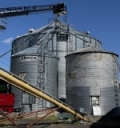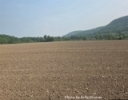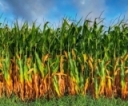Field Crops
 Field crop production addresses several crops such as corn, soybeans, and small grains throughout the Southwest NY region. We offer programming around pest and disease management, nutrient management, grain production, variety selection, and soil analyses.
Field crop production addresses several crops such as corn, soybeans, and small grains throughout the Southwest NY region. We offer programming around pest and disease management, nutrient management, grain production, variety selection, and soil analyses. Relevant Events
Southern Tier Crop Congress
January 28, 2026 : Southern Tier Crop Congress
Belfast, NY
Winter Field Crops Meeting
February 3, 2026 : Winter Field Crops Meeting
North Collins, NY
2026 No-Till & Cover Crop Conference
February 19, 2026 : 2026 No-Till & Cover Crop Conference
South Burlington, VT
NYSDEC How to Get Certified Course
March 3, 2026 : NYSDEC How to Get Certified Course
Ellicottville, NY
Framing the Discussions on BMR Corn

In the spring of 2025, Corteva announced they would discontinue the development of brown midrib (BMR) corn products. As numerous discussions on the topic have unfolded over the last several months, it has been apparent that sometimes the framing of the questions are not leading to the most productive discussions or decisions for a farm. Check out this article for important considerations for strateggizing forage plans for your farm.
What You Need to Know about the USDA's Farmer Bridge Assistance Program
Kate McDonald Polakiewicz, Farm Business Management
Southwest New York Dairy, Livestock and Field Crops Program
The US Department of Agriculture's Farmer Bridge Assistance (FBA) Program announced $12 billion in aid for US farmers this past December. Here's what you need to know.
Don't Put All Your Seeds in One Basket
Katelyn Miller, Field Crops and Forage Specialist
Southwest New York Dairy, Livestock and Field Crops Program

While harvest has stretched on for many, attention is beginning to shift toward planning for the 2026 growing season. This article highlights key factors to consider as seed ordering approaches, helping ensure selections align with field conditions and production goals.
The Tillage Toolbelt: Pest Management
Rounding out the final article in this series on till vs no-till, we're finally focusing on how your tillage decisions can impact the pest pressures on your farm. Your tillage decisions present different challenges and opportunities as it relates to pest management.
Looking Past the Bin Door
Katelyn Miller, Field Crops and Forage Specialist
Southwest New York Dairy, Livestock and Field Crops Program

As grain enters the bins, I've been having more frequent conversations about commodity marketing. There is no one size fits all approach, but one thing remains the same: understanding your cost of production is the foundation of every sound management decision.
Learn From Your Silage Harvest

The number of moving parts and pressure to get everything correct during corn silage harvest can be daunting. It is worthy to recognize that the harvest season is a valuable learning and planning opportunity. Documenting crop progress and challenges throughout the season is a good practice, but information collected during the harvest of the single most utilized ingredient in many dairy rations can be particularly valuable.
Governor Hochul Announces Two Grant Opportunities
Governor Hochul has announced two grant opportunities to help address the impacts of climate change and protect water quality. Funding is available in four tracks: Livestock Management (alternative waste and precision feeding management), Adaptation and Resiliency, Healthy Soils, and Agricultural Forestry Management. Contact your local Soil & Water Conservation office for more information.
The Tillage Toolbelt: Soil Structure

Continuing this series from last month, we're taking a look at all of the differences between tilling and no-till systems to help you figure out which system is best for your farm. We previously looked at how tillage decisions impact nutrient cycling, and this time we're considering how the same decisions can change soil structure. Your choice to till or not to till can significantly change your soil structure, determining what kinds of challenges may appear or which may be avoided.
Who Invited Knapweed?
Katelyn Miller, Field Crops and Forage Specialist
Southwest New York Dairy, Livestock and Field Crops Program

Knapweed is an aggressive weed that spreads rapidly and reduces the quality of fresh and baled forages. Controlling it however, is not a simple answer. Check out this article for more information about the weed and tips on how to manage it.
The Tillage Toolbelt: Nutrient Cycling
The decision to till or no-till is not a one size fits all approach. This article series aims to clear up some of the confusion about the ways that tillage (or a lack thereof) impacts our fields, and how the challenges you face could determine whether it's the right move for you.
Combine Adjustments to Minimize Corn Harvest Losses

Volunteer corn infestations popping up in your crop rotation can reduce crop yield and require additional herbicide considerations. Now is the time to prepare for harvest by calibrating your equipment to minimize harvest losses.
Management Considerations for Immature and Frosted Corn Silage

With our average frost date fast approaching, it's time to consider how we are going to handle corn that is either immature or experiences a frost. Check out this article for tips on how to manage this forage.
Upcoming Events
Boots in the Barn: Cornell Dairy Research Updates
January 13, 2026
January 20, 2026
January 27, 2026
February 3, 2026
February 10, 2026
February 17, 2026
February 24, 2026
Southern Tier Crop Congress
January 28, 2026 : Southern Tier Crop Congress
Belfast, NY
Northeast Grazing and Livestock Conference
January 30 - January 31, 2026 : Northeast Grazing and Livestock Conference
Manchester, NH
Announcements
Cows, Crops & Critters Newsletter Sponsorship
TRYING TO REACH GROWERS AND AGRIBUSINESSES IN OUR SOUTHWEST REGION OF NEW YORK?Weekly Email Update: Shared with 625+ households who have signed up with our program.
Monthly Paper Mailer: To reach our stakeholders and farmers who lack internet access, we send out a monthly mailer where your company's logo and contact information would be featured with a mailing list of 330+ households.
If you sponsor our weekly and monthly publications you reach approximately 955 households.





